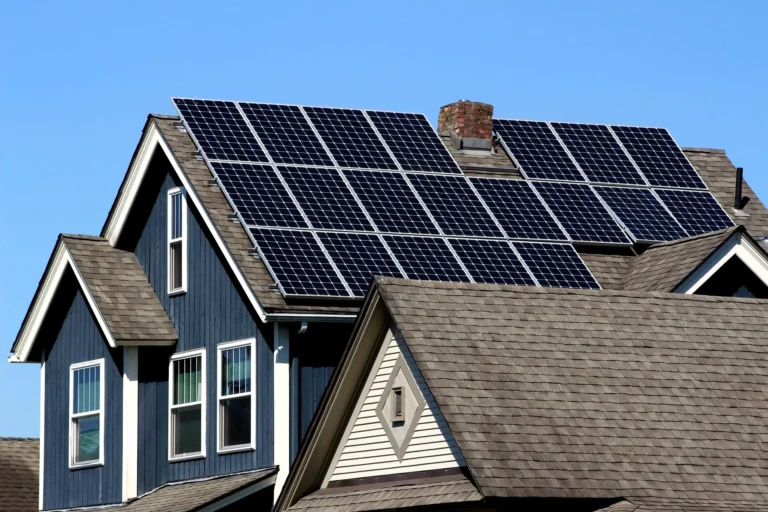
Iberdrola and FCC Ámbito Launch EnergyLOOP: A Landmark Wind Turbine Blade Recycling Plant in Spain
In a pioneering step toward sustainable energy infrastructure and circular economy practices, Iberdrola España, a key subsidiary of the Iberdrola Group, in collaboration with FCC Ámbito, has officially inaugurated EnergyLOOP, the first facility dedicated solely to recycling wind turbine blades on the Iberian Peninsula. This groundbreaking plant, located in Navarra, northern Spain, is poised to become a cornerstone of Europe’s growing wind energy circular economy by addressing one of the renewable energy sector’s most pressing challenges—the recycling of wind turbine components at the end of their operational lifespan.
Responding to a Growing Global Challenge
Wind power is one of the most important pillars of the global energy transition, but it brings with it significant long-term sustainability challenges. Chief among them is the issue of what to do with aging or decommissioned wind turbine blades. Constructed primarily from composite materials like fiberglass and epoxy resins, these blades are lightweight, durable, and incredibly difficult to recycle using traditional methods. As such, they often end up in landfills—a contradiction for a sector built on sustainability.
According to industry forecasts, by the year 2030, approximately 5,700 wind turbines will be dismantled annually across Europe. Many of these will be removed as a result of repowering projects—upgrades to existing wind farms with newer, more efficient turbines—as well as the natural decommissioning of aging infrastructure. This creates a significant and growing stream of waste material that must be responsibly managed to preserve the sustainability profile of wind energy.
It is within this context that EnergyLOOP emerges as a critical and timely development.
A Pioneering Facility for the Circular Economy
The EnergyLOOP plant is designed to handle these challenges head-on by offering a specialized, scalable solution for the recycling of wind turbine blades. The project is not just about waste management; it is about redefining waste as a resource. Through advanced recycling technologies and processes, the facility will enable the recovery of valuable materials from decommissioned wind turbine blades—such as glass fibers and resins—which can then be reintegrated into production cycles across a variety of industries.
The ambition behind this project is to enable reindustrialization based on sustainability principles. The recycled materials will be repurposed for use in high-demand sectors including:
- Energy: reused in infrastructure or component manufacturing
- Aerospace: where lightweight and high-performance materials are key
- Automotive: for vehicle manufacturing and components
- Textiles: potentially as reinforcement for fabrics
- Chemical industry: to develop new composite materials or additives
- Construction: where durable and sustainable materials are increasingly in demand
By creating these cross-sectoral linkages, EnergyLOOP aims to transform the wind power industry into a model of circular economy in action, in line with EU sustainability goals and the broader Green Deal agenda.
Investment and Vision: Backed by Iberdrola’s PERSEO Programme
EnergyLOOP is more than just a recycling plant—it is a bold vision brought to life through collaboration, innovation, and strategic investment. The plant has been developed under the PERSEO venture programme, Iberdrola’s strategic initiative aimed at promoting the energy transition through investment in emerging technologies and circular economy models.
Launched in 2008, PERSEO has become one of the most active corporate venture arms in Europe, with a strong focus on sustainability, decarbonization, and circular business models. The programme has invested more than €175 million in startups and innovative industrial initiatives across the renewable energy value chain.
For the EnergyLOOP project, a dedicated €10 million investment was allocated for the construction and launch of the plant. Beyond the financial outlay, the collaboration between Iberdrola and FCC Ámbito—an environmental services subsidiary of the broader FCC Group—represents a fusion of expertise in energy systems and sustainable waste management. Together, the partners bring deep experience in infrastructure development, materials handling, and industrial-scale innovation.
This partnership also paves the way for job creation and industrial regeneration in the Navarra region. By setting up this facility in northern Spain, the companies are not only tackling a global environmental issue but also contributing to the regional economy through the generation of high-quality employment and the development of new value chains around recycling technologies.
A Strategic Step Toward Wind Power Circularity
The wind power sector is often seen as one of the cleanest and most efficient forms of renewable energy. Yet, like all energy technologies, it has a material footprint. Blades, in particular, pose significant logistical and ecological issues at the end of their operational life.
EnergyLOOP’s approach to blade recycling focuses on mechanical, thermal, and chemical processes that allow for the separation and recovery of blade components, especially composite materials. The facility is being equipped with cutting-edge recycling technology to ensure high recovery yields and quality of secondary materials.
This development is a crucial first step in addressing the full lifecycle of wind energy infrastructure. From sourcing and manufacturing to operation and decommissioning, the industry is under increasing pressure to offer complete sustainability pathways. By enabling the full or partial recovery of complex composite components, EnergyLOOP is not only reducing landfill pressure but also reducing the need for virgin raw materials.
Furthermore, the project aligns with growing regulatory trends in Europe that emphasize extended producer responsibility (EPR) and circular material flows. It supports Spain’s national energy and climate strategy and contributes toward the European Union’s goal of achieving net-zero emissions by 2050.
A Model for Future Replication
The EnergyLOOP initiative is being closely watched by other EU member states, wind industry stakeholders, and environmental organizations. As one of the first dedicated blade recycling plants in Europe, and the first of its kind on the Iberian Peninsula, it offers a practical, replicable model for circular economy operations in the wind sector.
In time, similar facilities may emerge across Europe, North America, and other wind-intensive regions, particularly as global wind capacity expands and older farms begin to age out. The global wind market is projected to reach 1,000 GW of installed capacity by 2030, meaning hundreds of thousands of blades will eventually require end-of-life solutions.
EnergyLOOP demonstrates that scalable, industrial-level solutions for blade recycling are both technically feasible and economically viable when supported by innovation, collaboration, and forward-looking policy frameworks.
Driving the Green Transition Through Industrial Action
In summary, the launch of EnergyLOOP marks a major milestone in Iberdrola’s broader commitment to climate action, decarbonization, and responsible innovation. The project represents a tangible, boots-on-the-ground example of how the energy transition can be implemented through industrial development, not just theoretical targets.
By turning the challenge of wind blade waste into an opportunity for economic renewal and material innovation, Iberdrola and FCC Ámbito are not only leading the way in Spain but also setting a European benchmark for sustainable wind power development.
This plant is not just about managing waste—it’s about reshaping the industrial ecosystem that supports clean energy, turning it into one that is resilient, circular, and equipped for the future.
As global attention turns toward building cleaner, more sustainable economies, projects like EnergyLOOP remind us that the green transition is not a distant dream but a process already unfolding—one innovative facility at a time.







